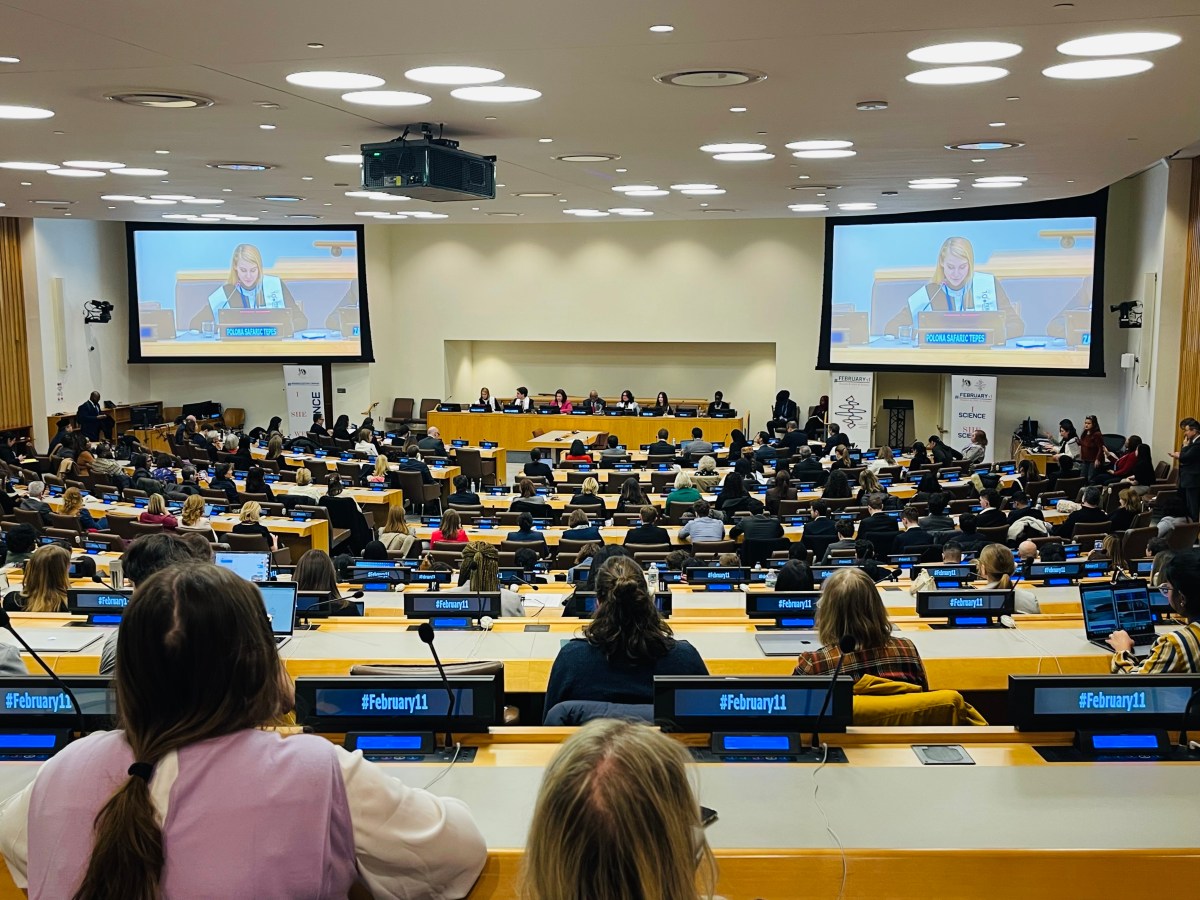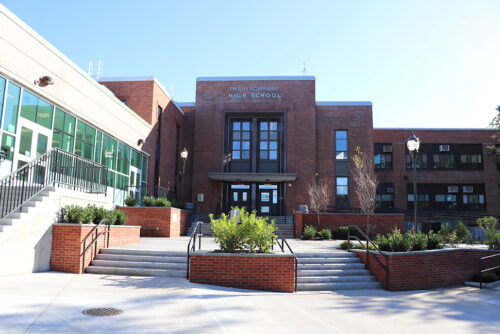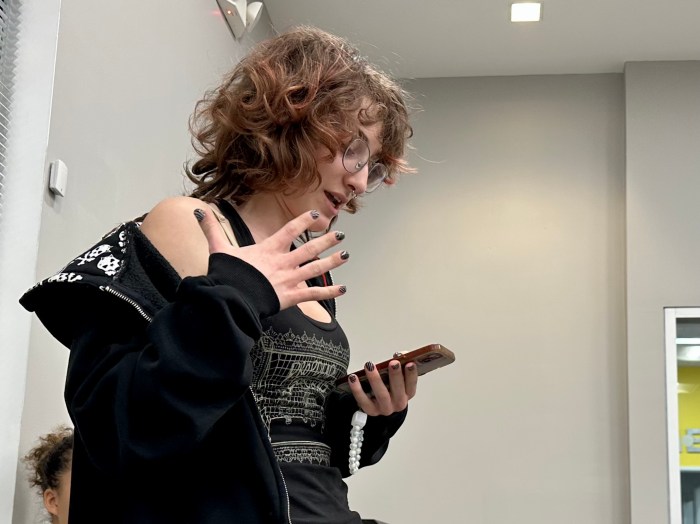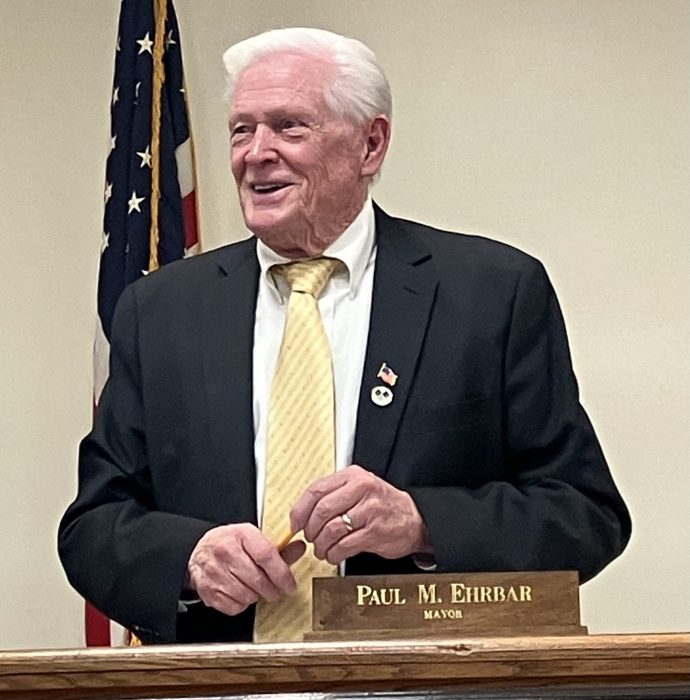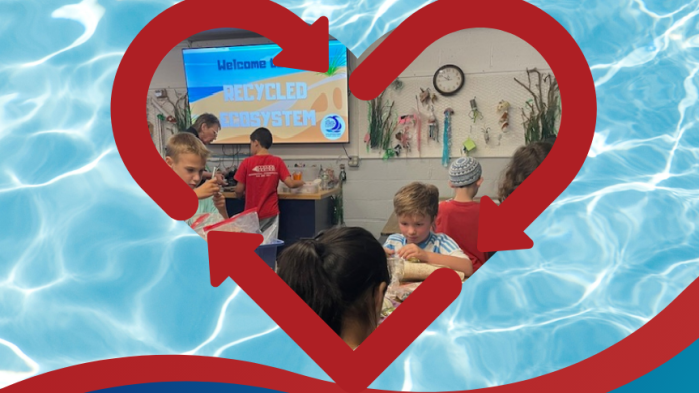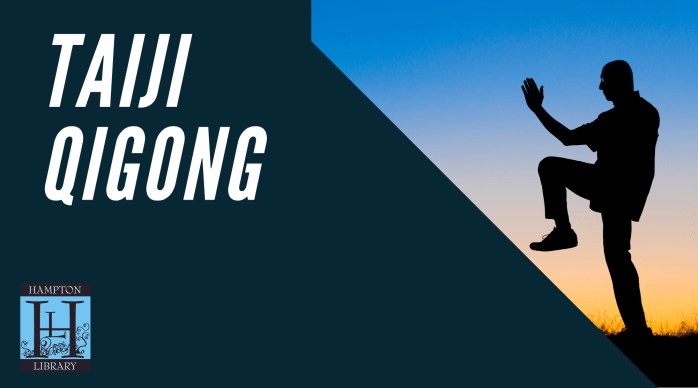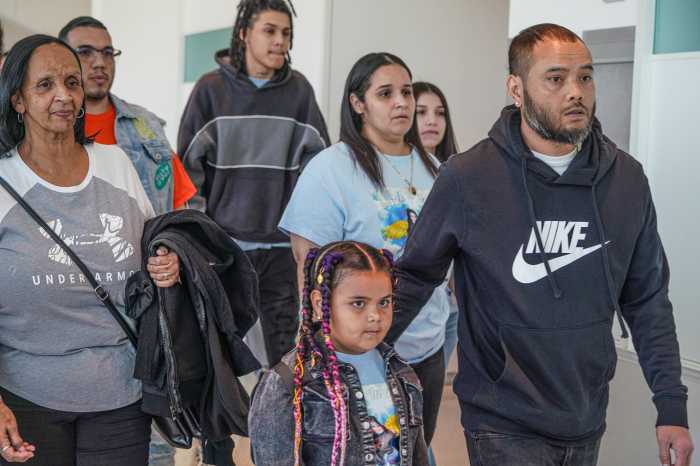Leaders from Northwell Health’s Feinstein Institutes, the health network’s research arm, joined their fellow international leaders to discuss the importance of closing gender gaps in science and the growth women have made in the field on the United Nations’ global platform.
Dr. Betty Diamond Northwell, director of the Institute of Molecular Medicine at The Feinstein Institutes, attended and spoke at the event as an academic researcher, calling the day “unbelievably inspiring.”
“You hear about the sort of grit and determination of women and you hear about the contributions of women and you hear about the commitment to women and the recognition of what they bring that expands the universe of questions that get asked and solutions that get found,” Diamond said.
Multiple U.N. delegations spoke at the Feb. 11 event about the advancement of women in science in their countries as well as organization representatives who work in a variety of scientific disciplines.
The event was sponsored by the Royal Academy of Science International Trust, or RASIT, which is an international non-governmental organization devoted to a diverse array of social and economic developments.
Other Northwell researchers were present at the United Nations in Manhattan as well, including Dr. Elizabeth Cohn, vice president of health equity research at the Institute of Health System Science, and multiple individuals from the institute’s Advancing Women in Science and Medicine.
“It’s truly a group of people who are very committed, who are very cognizant about the fact that any work that is being done by a heterogeneous group of people with different interests and different experiences provides innovative solutions that are often the best solutions for whatever the problem is,” Diamond said of attendees.
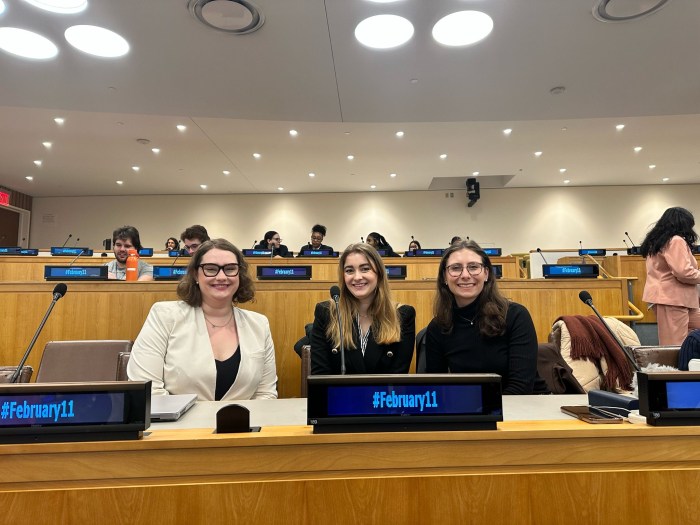
There are great benefits in the inclusion and advancement of women in science, Diamond said, including the improvement in women’s health through their inclusion in research.
Her research shows the benefits of including a diverse collection of researchers.
The autoimmune disease Lupus, which Diamond studies, was once associated with white women. She said this was due in part to the flushed rash women get from lupus, which is easier to identify on an individual with fairer skin.
But Diamond said it doesn’t only affect white women and it took researchers of diverse backgrounds to better recognize the disease in women of color.
Diamond said she found inspiration in many of the woman who spoke at the event, including a Brazilian woman seeking to be the first South American woman in space and Wanda Díaz-Merced, an astrophysicist who went blind due to diabetes and converts her telescope images into sounds to hear what others would see.
“It’s truly inspirational,” Diamond said.
While the event is in one part motivational, it also serves as a platform to discuss what more can be done.
Diamond, a physician scientist who studies the DNA-reactive B cells in lupus, began her career in medical research in the early ’80s. She said that while she has seen great strides being made and was inspired by the woman at the event, there’s still so much more to be done.
Today, more women are in the field of science than when Diamond was in medical school – where she was one of maybe five women in a class of 100 men. While the number of women has grown in science and the field of medicine, Diamond said disparities are slower to become more equal as women climb the professional ladder.
Diamond said prejudices against women in science still exist today and that women are often told they are inherently not good in the field. She said this is “total nonsense.”
She said the U.N. conversation is designed to inspire girls and reassure them that the field of science is for them and an area where they can prosper and contribute to necessary advancements.




